2015 Pivot Mach 6 Carbon X01
(discontinued)
| Where To Buy | |||
|---|---|---|---|
Free shipping on orders over $50 (continental U.S. only).
International shipping available. Some exclusions apply. |
Free shipping on orders over $50 (continental U.S. only).
International shipping available. Some exclusions apply. $8,499.00
|
||
Free shipping on orders over $50 (continental U.S. only).
International shipping available. Some exclusions apply. |
Free shipping on orders over $50 (continental U.S. only).
International shipping available. Some exclusions apply. $4,355.00
|
||
Reviewed by Steve Wentz and Brandon Turman // Photos by Lear Miller
Pivot's Mach 6 Carbon has existed for a few years now, a veritable eternity in the world of changing designs and all-new products. It does, however, build off the success of the already refined Mach 5.7 and Firebird, blending the best qualities of each into one do-it-all machine. It certainly looks like it checks all the boxes, so lets mull over the details and hit the trail to see if the Mach 6 is indeed worthy of the name. We spent some time getting acquainted with it during the 2015 Vital MTB Test Sessions.

Highlights
- Carbon frame
- 27.5-inch wheels
- 155mm (6.1-inches) of rear wheel travel // 160mm (6.3-inches) front travel
- Tapered headtube
- 66-degree head angle (XS, S, M) // 66.25-degree (L) // 66.5-degree (XL)
- 72.3-degree effective seat tube angle
- 341mm (13.4-inch) measured bottom bracket height
- 430mm (16.9-inch) chainstays
- Press Fit 92 bottom bracket
- 142mm rear spacing with 12mm through axle
- Measured complete weight (size Large, no pedals): 27-pounds, 14-oz (12.64kg)
- MSRP $6,199 + $399 for optional KS dropper post
Six inches of travel, dw-link suspension, 27.5-inch wheels, a slack head angle, relatively short chainstays, and gadgets galore - Pivot's flagship doesn't disappoint in the feature department. At the heart of the frame, the dw-link suspension promises a good deal of anti-squat when you put the power down, neutral braking, and supple bump eating the rest of the time. Dave Weagle's system has been around for a long time now, and we appreciate having a design that has been tuned and re-tuned over the years. This bike sees a new upper linkage design that provides additional control over the suspension curve. Pivot also claims that the "variable wheel travel path provides incredible square edge bump absorption and control on technical descents."

On the flip side of refinement, 27.5-inch wheels grace almost every new bike available now. In a few short years they went from oddities to the top item on most riders' wish lists. We see no problem with this, as they handle everything pretty well. Rolling? Better than bikes from a few years ago. Strength? Better than the what the XC camp rides.
Aside from the carbon frame, which utilizes "an exclusive hollow box, high-compression internal mandrel technology" to result in the claimed "best stiffness to weight ratio in its class," there is some internal cable routing, rubberized leather chainstay/seat stay/down tube protectors, post mount disc brake tabs, a press fit bottom bracket, ISCG tabs, bottle mount, aggressive looks, and the option to run multiple chainrings and a direct mount front derailleur if you so choose. We tend to not change up bikes after we find what we like, so the lack of adjustable geometry does not bother us on the Mach 6. Slack angles and relatively short chainstays are a recipe for good times. The tucked-in linkage design provides a satisfactory 1cm of mud clearance at the tightest point with the stock tire.

Cable routing is very direct, but there are a few odd qualities to it. Pivot provides internal routing for the dropper post, putting them in the same company as so many others now. The other internal routing is a mere foot long section of rear derailleur cable. The cable exits the top tube at the upper shock mount. Both it and the external rear brake cable bend out toward the rider around the seat tube when the suspension is compressed. They don't really get it in the way, but a more well thought out cable system could be a benefit. On the plus side, it lacks the dreaded cable rattle that plagues so many bikes today. We're also not fans of the excessive amount of branding that adorns an otherwise clean looking frame.
Pivot offers the Mach 6 Carbon in XS-XL sizes with a whopping eight build kit configurations ranging from the great value Shimano SLX/XT combo to an ultra pricey option adorned with XTR components. Our SRAM X01 equipped test bike fell right in the middle of the range at $6,199, plus a $399 add-on for the very necessary KS Lev Integra dropper post.
On The Trail
The rowdy, rock-strewn trails off of West Cuesta Ridge in San Luis Obispo, California started off our test days, followed by the high-speed corners of Morning Glory, and finally jumps and berms in the Eucs Project.
The Mach 6 felt comfortable to us as we pedaled from the trailhead. The cockpit is acceptable, with a 755mm bar that is just wide enough and 60mm stem that's just short enough. Sag was easy to measure on the rear shock with Pivot's custom sag indicator, and the fork's adjustments were equally as easy to work with. We settled on Pivot's recommended 20mm of sag and 'Trail 1' setting on the rear FOX Float X CTD shock to begin. Note that the Float X rebound knob is extremely close to the forward shock mount, making quick rebound adjustments impossible without a small twig or tiny allen key.

On the fit side of the equation, the Mach 6 is a bit odd. While our test bike was listed as a Large, the frame felt surprisingly comfortable for our 5'8" tester who typically rides Medium bikes. The reason for this is partly due to the actual seat tube angle. The listed 72.3-degree seat tube angle can be deceiving (it's the effective seat tube angle at a seat height that may not match your own), with the actual seat tube angle resting at a very slack ~67.5-degrees. This may have been required due to the frame and suspension design. As is always the case, the higher you raise the seat the further back the seat gets, but the extreme angle on the Mach 6 makes for an average to short top tube length with a little seatpost extension and a long top tube if you have long legs and need more seatpost exposed. Because of this it's really important to know your body's proportions. If you have long arms and legs this bike might be great while seated. Short arms and legs? Also works. But… if your legs are long and you have a shorter reach the Mach 6 may give you some trouble, and the same goes for shorter legs and longer arms.
Because you stand while descending it's also important to consider the 414mm reach measurement, which is very short for a size Large frame - this left our 5'10" tester wanting a longer front end while descending at speed, but our 5'8" tester enjoyed it when the going got rough. The XL frame reach is also short at just 425mm reach. While not ideal, our recommendation for those who prefer a longer reach is to get the biggest frame you can while considering the seat tube length, then use your fore/aft saddle position to adjust as needed.
The rest of the geometry did make for a fun ride in most terrain. We appreciate how Pivot didn't go crazy with the head angle. It's slack at 66.25-degrees, but not so slack that the bike only responds to speeds above 20mph. The head angle makes climbing acceptable, tight twisty singletrack enjoyable, and really rough stuff more engaging instead of a muted experience. The front end was easy to get up with 430mm chain stays, changing lines was easy to do, and it was precise at speed. Regardless of the short reach, the bike was planted, the suspension worked well, and there wasn't a ton of racket coming from any component. The suspension would stick to the ground and add stability, which was a pleasant surprise compared to other lightweight bikes that can feel sketchy when opened up.

We initially started riding in the Trail 1 shock damping setting, which provided a controlled ride that worked well in most situations and was responsive to very small rider inputs. It lacked great small bump sensitivity though, and because the bike is already pretty progressive, doing without the Trail platform and switching to Descend yielded a better ride in our eyes. Descend mode also let the suspension compress just a little bit more, so it was easier to compress the bike to the point in the suspension when you can really jump it or move it around. This might seem counterintuitive for some, but Trail 1 provided what we felt was a firm initial stroke that we had push through often. Small bumps in Descend mode were perceivable only to the point of knowing what our tires were doing.
Once we found what we liked, the Pivot was very good to us in many situations. The suspension felt really planted in corners, and we could move the bike around when we needed to. The trail was not lost under the bike, it could be felt, and small adjustments to your riding can really make the Mach 6 live up to its name. The suspension and wheel path was also good enough that it didn't pack up and allowed riders to keep mowing down the hill whether it was rough and rutted or necessitated some rider induced air. Jumps were good, but we want to caution against building this up as a lightweight park bike. Some cased jumps and over-cleared sections used up a lot of travel. The bottom-out wasn't harsh, but this frame is not as progressive as others that could be more suitable for that application.
At 27.9-pounds it isn't just light on the scale, but also felt light and snappy while pedaling. The dw-link suspension has a large amount of anti-squat built in. This makes pedaling feel as if it has an immediate effect on the bike, but we are torn on if this is a good thing on a bike like this - it really depends on where and how you ride. While pedaling lightly over different types of terrain the suspension was largely unaffected. Any moderate to powerful efforts on the pedals resulted in exactly what the frame was designed to do, and the rear end would stiffen up when we pedaled over rough terrain. This was unwelcome when we encountered sections that were rough leading up to ledges, where the stiffness while pedaling was throwing us around a bit before a compression. Additionally, when smooth pedaling over terrain with bumps here or there, the effect of suspension movement created some dead spots in our pedal stroke. The pedaling feel is one that you'll have to ride to experience. Some will love it while others would prefer something different.
Geometry wise, the Pivot's stretched out seated climbing position allows for lots of movement fore and aft while tackling tough climbs. There were no downsides climbing the Mach 6, other than the possibility of taller riders having a tough time keeping the front end on the ground due to the seat angle. Overall, the Mach 6 sports a stiff frame that climbs well, with a unique behavior of how and when it stiffens up under power.
Build Kit
Before all the descending, climbing, and fun we had on the Pivot, we of course had a chance to drool over the whole setup. None of the most important parts on the X01 build can be called out for being money saving items, yet the front fork, wheels, rear suspension and drivetrain all provide great value for almost any budget. They all looked the part too for a bike meant for rallying. Only one component stood out visually on such a ripping build - the stem looked diminutive compared to many other components. While nothing happened while riding, we have become accustomed to beefier handlebar and steerer tube interfaces. If you need a longer or shorter stem than stock, a different brand might provide a more beefy (and comforting) look than what Pivot's in-house component provides. Honestly, we were relieved to gripe about "just" a stem.

FOX's new 36 provided consistent damping and very good terrain control. The damping adjustment range is very large and volume spacers can be added to the air spring if needed. The stiffness of the fork's chassis matches the awesome frame stiffness, and the only disconnect front to rear was in the damping. The 36 provided smooth damping, whether light or firm. The FOX Float X rear shock was smooth the whole way through in Descend mode, but less consistent in Trail and Climb modes.
The wheels were a very unique and welcomed addition the build kit. DT's 1700 series no doubt kept the weight low and provided a quick accelerating package. They use relatively normal spokes compared to many high end wheels, which allows for easier fixes should the time come. DT's hub bodies are also very reliable. After some hard hits the wheels still ran true at the conclusion of our test, with just a few dings to the rear rim.
Wrapping the wheels were Maxxis Highroller II tires. The casings were acceptable for the Pivot's intention, keeping a good balance between weight and durability. We liked the decision to run the 3C rubber as well, with both soft and firm sections. Rolling resistance was decent, cornering suited us just fine, and braking was great. If we were to race this bike in North American enduros we'd only opt to change to a slightly faster rolling rear tire. Going overseas to some burlier courses? Keep the back and go for a burlier front. The Highroller II is a jack of all trades, but does have shortcomings at both extremes.
In charge of the stopping duties were Shimano's tried and trued XT brakes with 180/160mm rotors. Once bedded in they provided consistent fade free performance. The power was good and modulation top notch. Shimano's reach adjustments are the easiest to use out of almost any brake out there, and there is also a pad contact/free stroke adjustment. We couldn't get the engagement to bite as soon as we wanted, but that trade off allowed for easy adjustment and clearance of the caliper/rotor interface.
We've ridden many bikes with SRAM XX1/X01 drivetrains and most of them are flawless. Every drivetrain will have a hiccup here or there, but with Pivot's combination of parts we had more hiccups than usual. A Race Face narrow/wide chainring provides front end security, and the cassette/derailleur combo is handled by the X01 system. We experience some ghost shifts which could be due to the suspension design or cable routing, the latter of which which made the derailleur cable bend around the seat tube when the suspension is compressed.
Despite the couple issues we had with shifting, the Pivot was surprisingly quiet. The smooth suspension and integrated swingarm guards no doubt aided in this, but credit must be given to the clutch on the SRAM X01 system. That, along with the chainring, prevented any dropped chains during our testing and let us concentrate on the trail ahead instead of any clanking noises underneath us. It'd be easy to install a chainguide using the ISCG tabs or front derailleur mount if your riding style or terrain warrants it.
Long Term Durability
Pivot's Mach 6 is stout, stiff, and showed no weak points in the durability arena. Of course, the stem could be swapped out, but that is mostly cosmetic as we never experienced any problems. Aluminum rims gets dented here and there, so the DT wheelset doesn't present a problem either. Pivot prints torque specs on the suspension pivots to allow for proper care of the frame's most vital moving parts. They back the frame with a three year warranty.

What's The Bottom Line?
With a dialed carbon frame, good suspension, and great components, $6,600 is indeed not a bad price for the Pivot Mach 6. It's arguable that nothing will return more bang for your buck past this price point and build kit. A few grams here and there might be your only savings.
If we were to pick a 6-inch bike that would be a weapon for corners, medium hits, and the type of terrain you're likely to encounter on the majority of your trail rides, the Mach 6 would be high up on our list. The few hiccups that we see in Pivot's torque delivery can also be seen as positives for many people, depending on terrain and riding style.
Are you looking for a bike that can do everything pretty well? The Mach 6 is worth checking out. Ensure that the slack seat tube angle and short reach measurement won't be an issue for you, play with the suspension to find what works best given your terrain, and the Mach 6 may indeed take you to new speeds on your next ride.
Visit www.pivotcycles.com for more details.
Bonus Gallery: 21 photos of the 2015 Pivot Mach 6 Carbon up close and in action
About The Reviewer
Steve Wentz - A man of many talents, Steve got his start in downhilling at a young age. He has been riding for over 18 years, 11 of which have been in the Pro ranks. Asked to describe his riding style he said, "I like to smooth out the trail myself." Today he builds some of the best trails in the world (and eats lots of M&M's).
Brandon Turman - Brandon likes to pop off the little bonus lines on the sides of the trail, get aggressive when he's in tune with a bike and talk tech. In 15 years of riding he worked his way through the Collegiate downhill ranks to the Pro level. Formerly a Mechanical Engineer, nowadays he's Vital MTB's resident product guy.

About Test Sessions
Three years ago Vital MTB set out to bring you the most honest, unbiased reviews you'll find anywhere. That tradition continues today as we ride 2015's most exciting trail, all-mountain, and enduro bikes in San Luis Obispo, California. Reviews can be accessed 24/7 in our Product Guide. Test Sessions was made possible with the help of Foothill Cyclery. Tester gear provided by Five Ten, Race Face, Easton, Troy Lee Designs, Club Ride, Kali, Royal, Smith, Pearl Izumi, and Source.
Specifications
| Where To Buy | |||
|---|---|---|---|
Free shipping on orders over $50 (continental U.S. only).
International shipping available. Some exclusions apply. |
Free shipping on orders over $50 (continental U.S. only).
International shipping available. Some exclusions apply. $8,499.00
|
||
Free shipping on orders over $50 (continental U.S. only).
International shipping available. Some exclusions apply. |
Free shipping on orders over $50 (continental U.S. only).
International shipping available. Some exclusions apply. $4,355.00
|
||









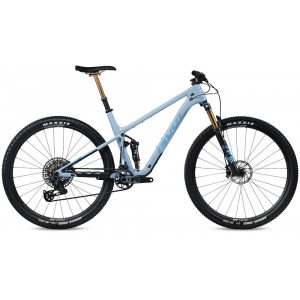
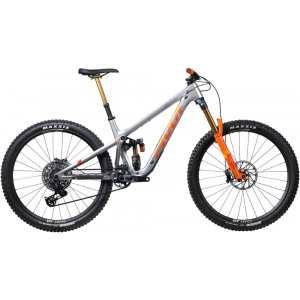

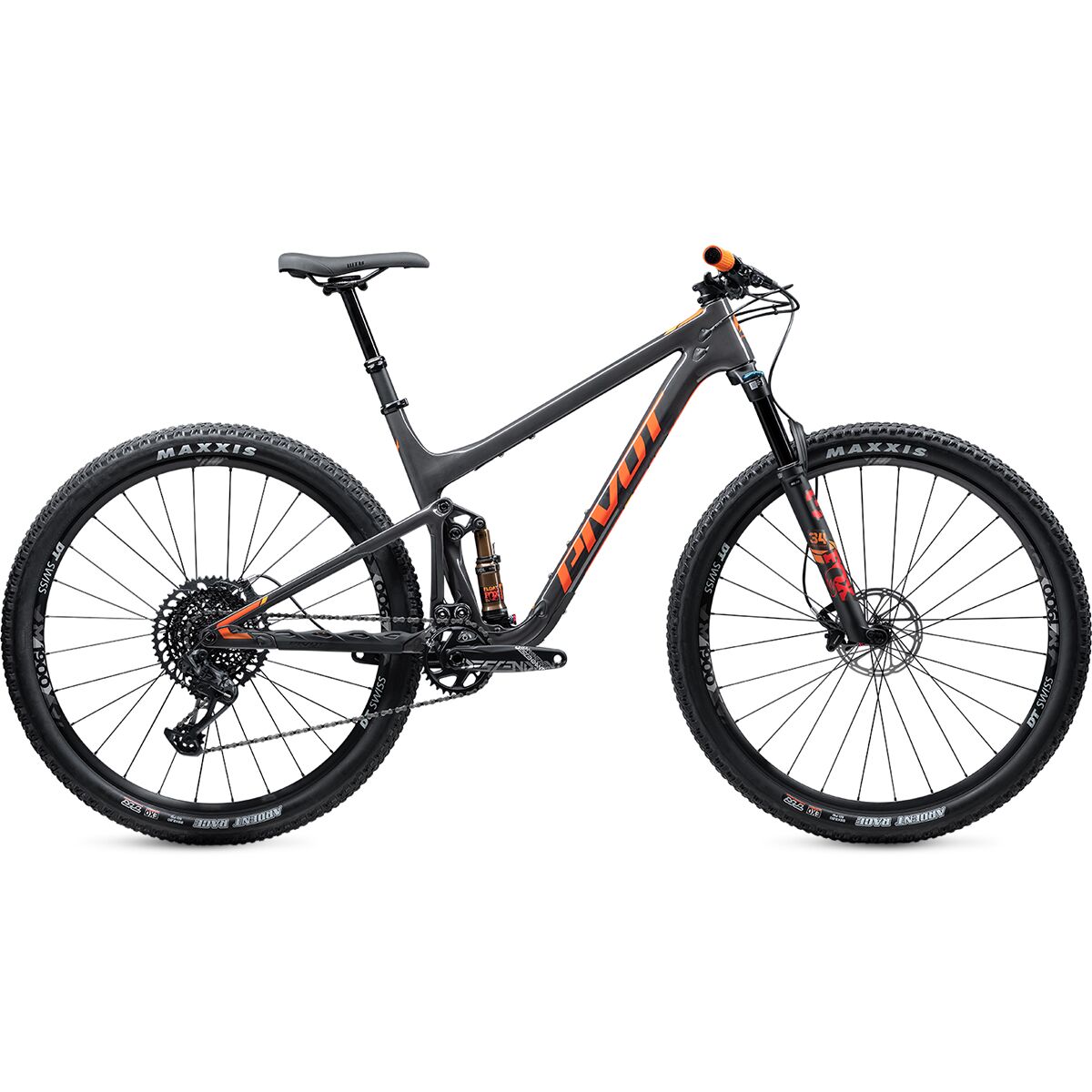
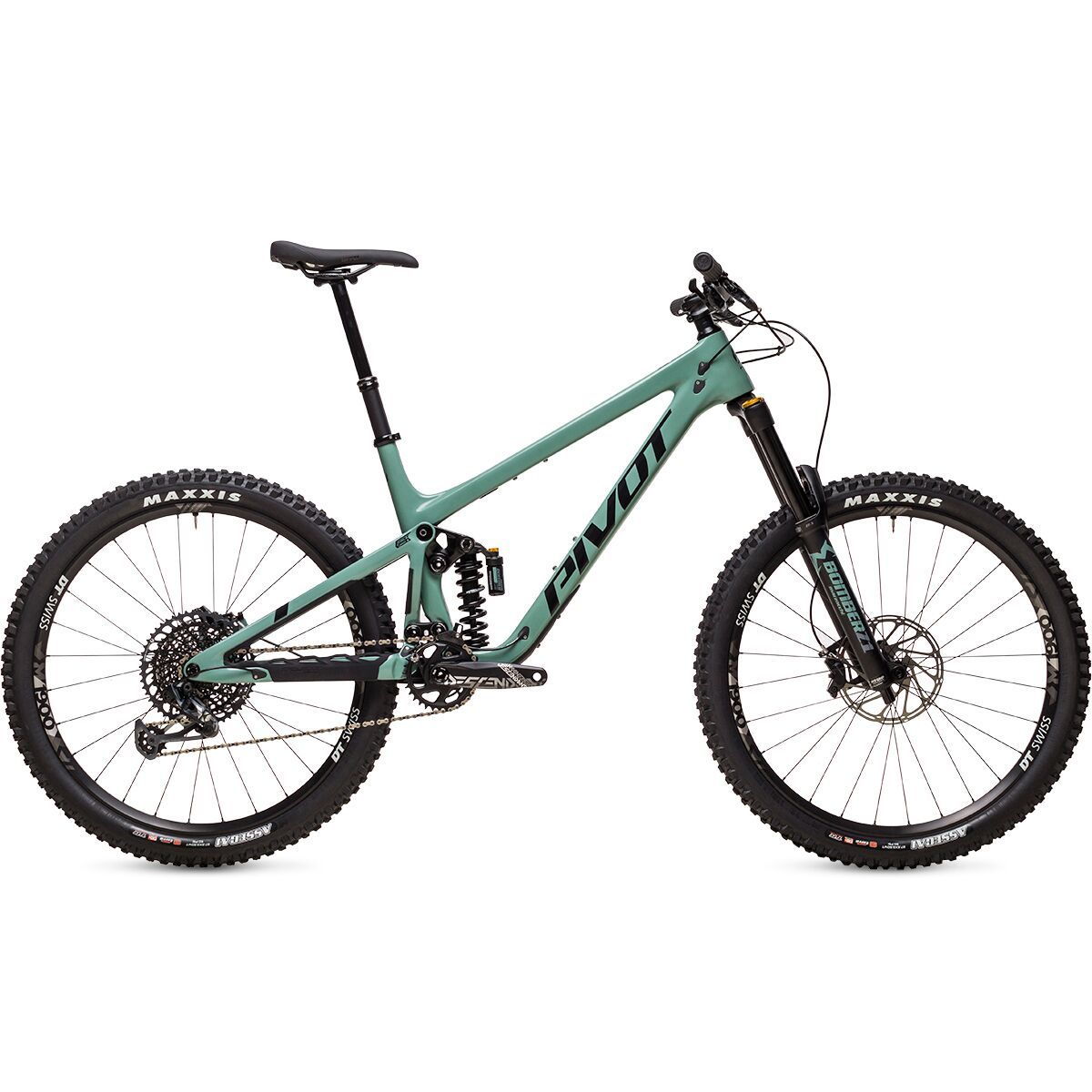

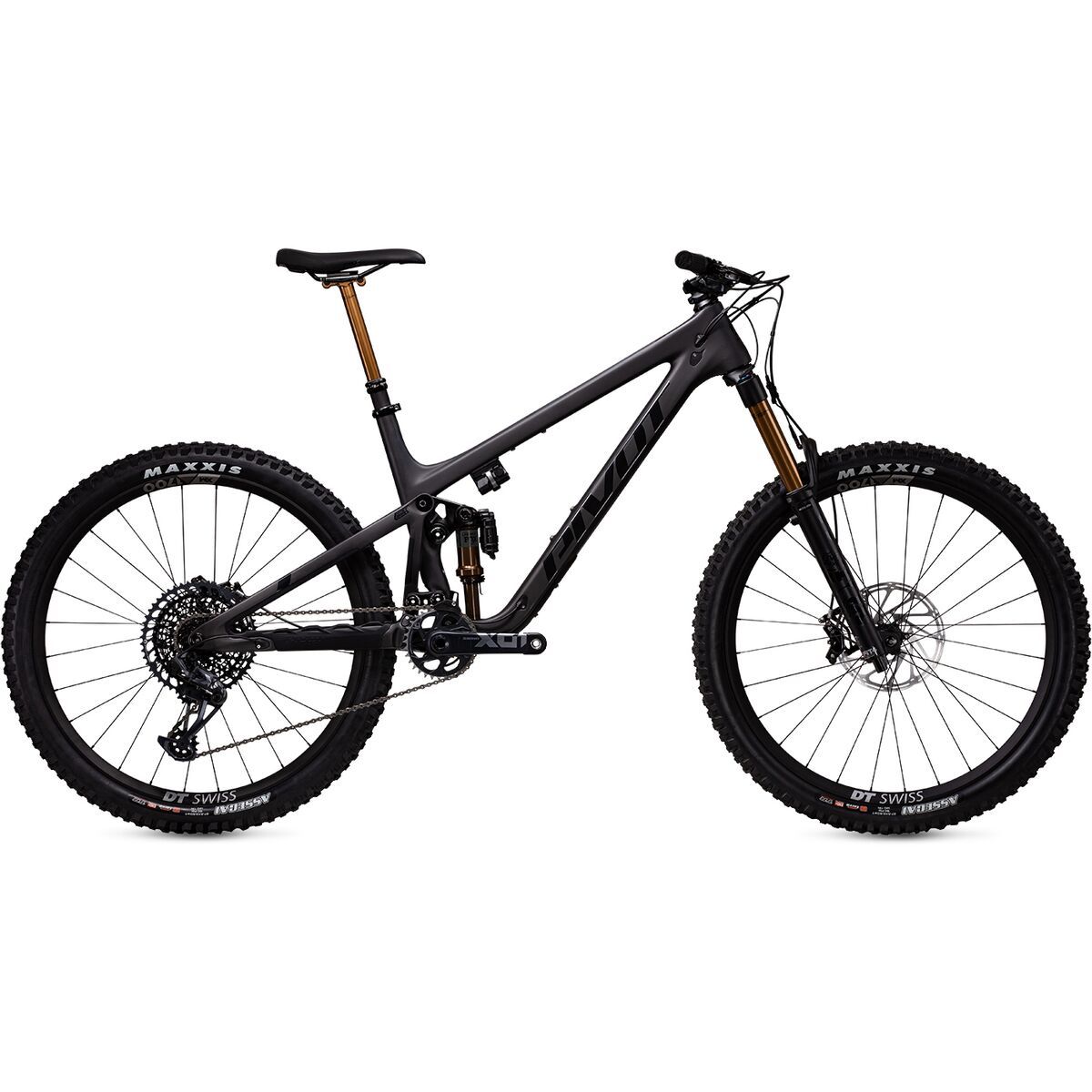
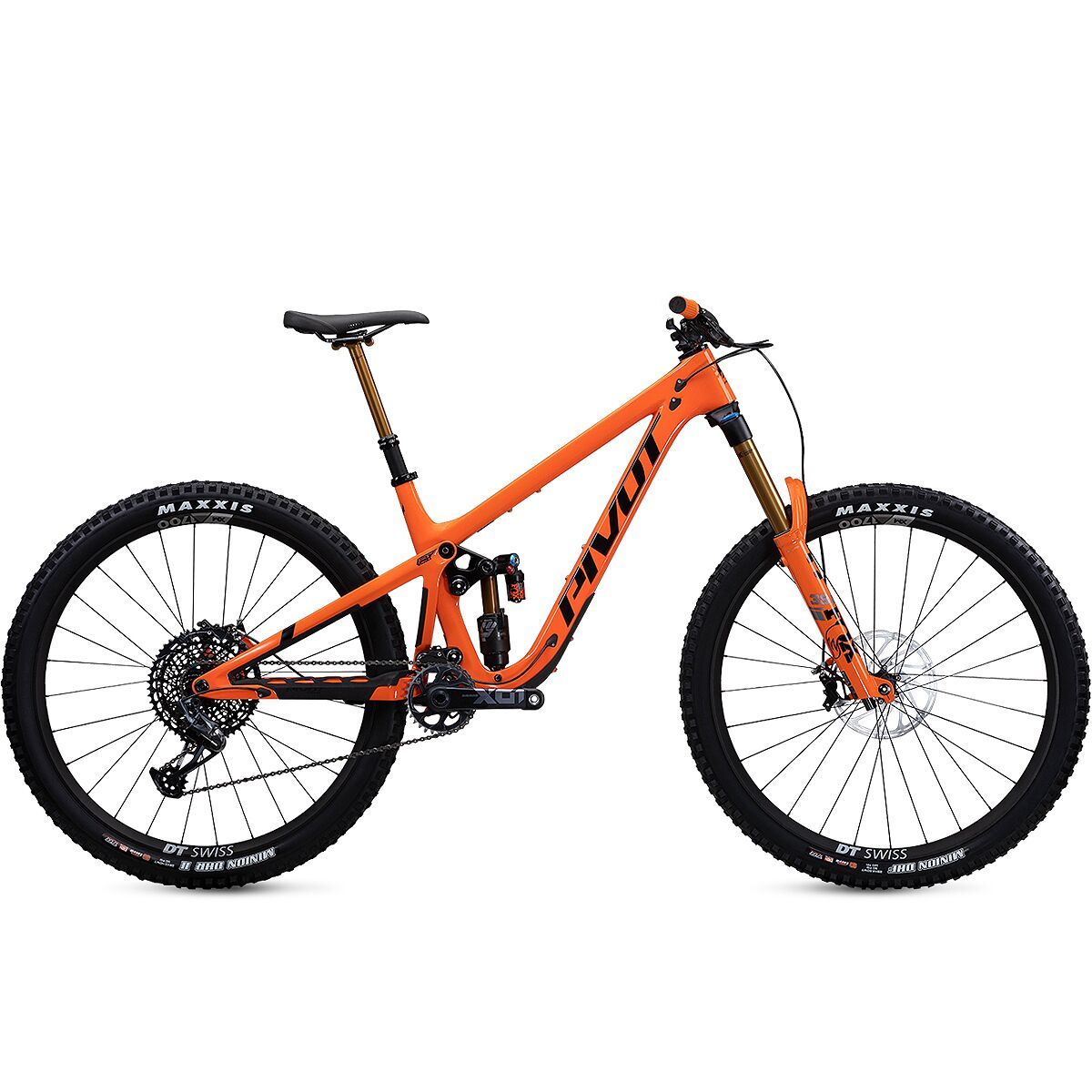
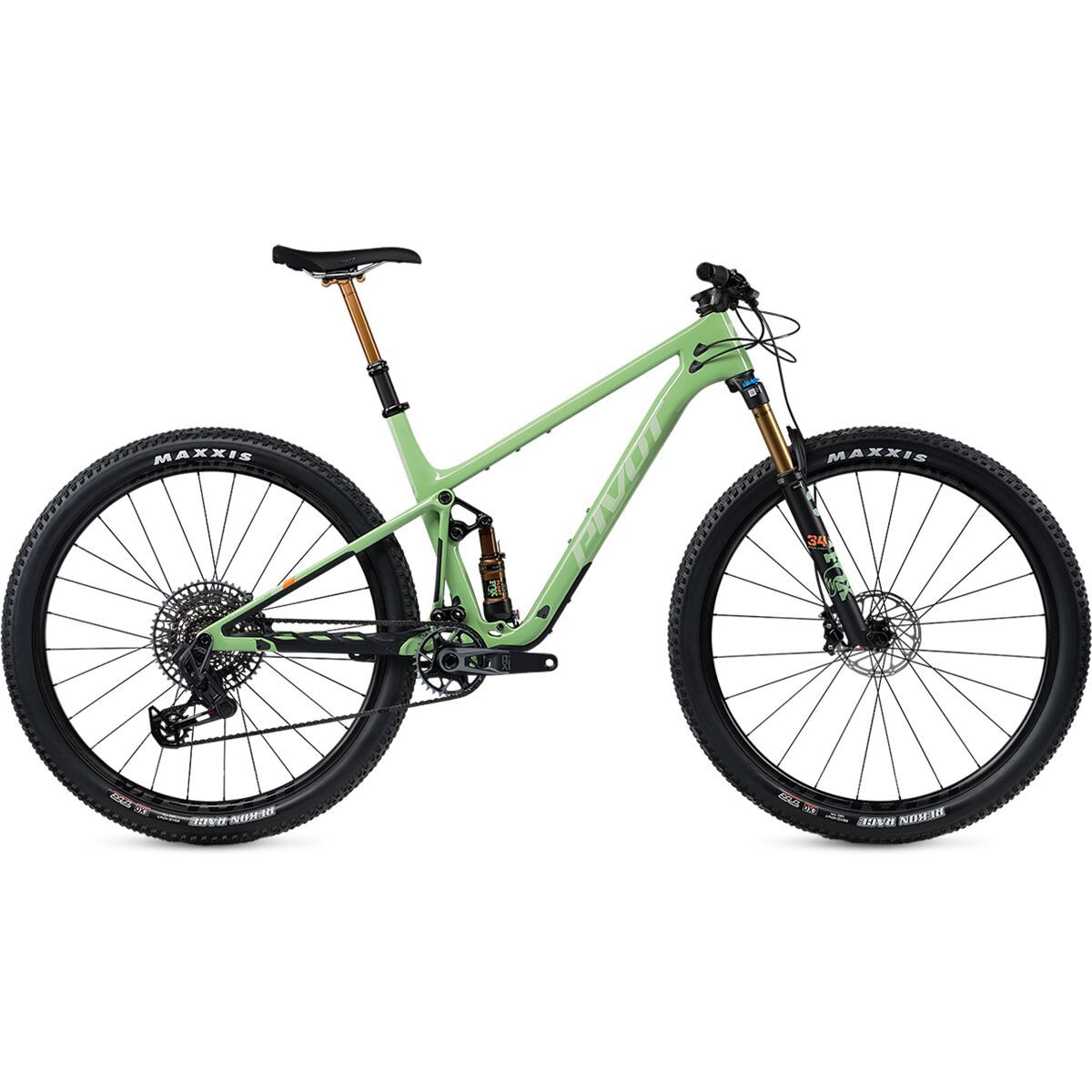


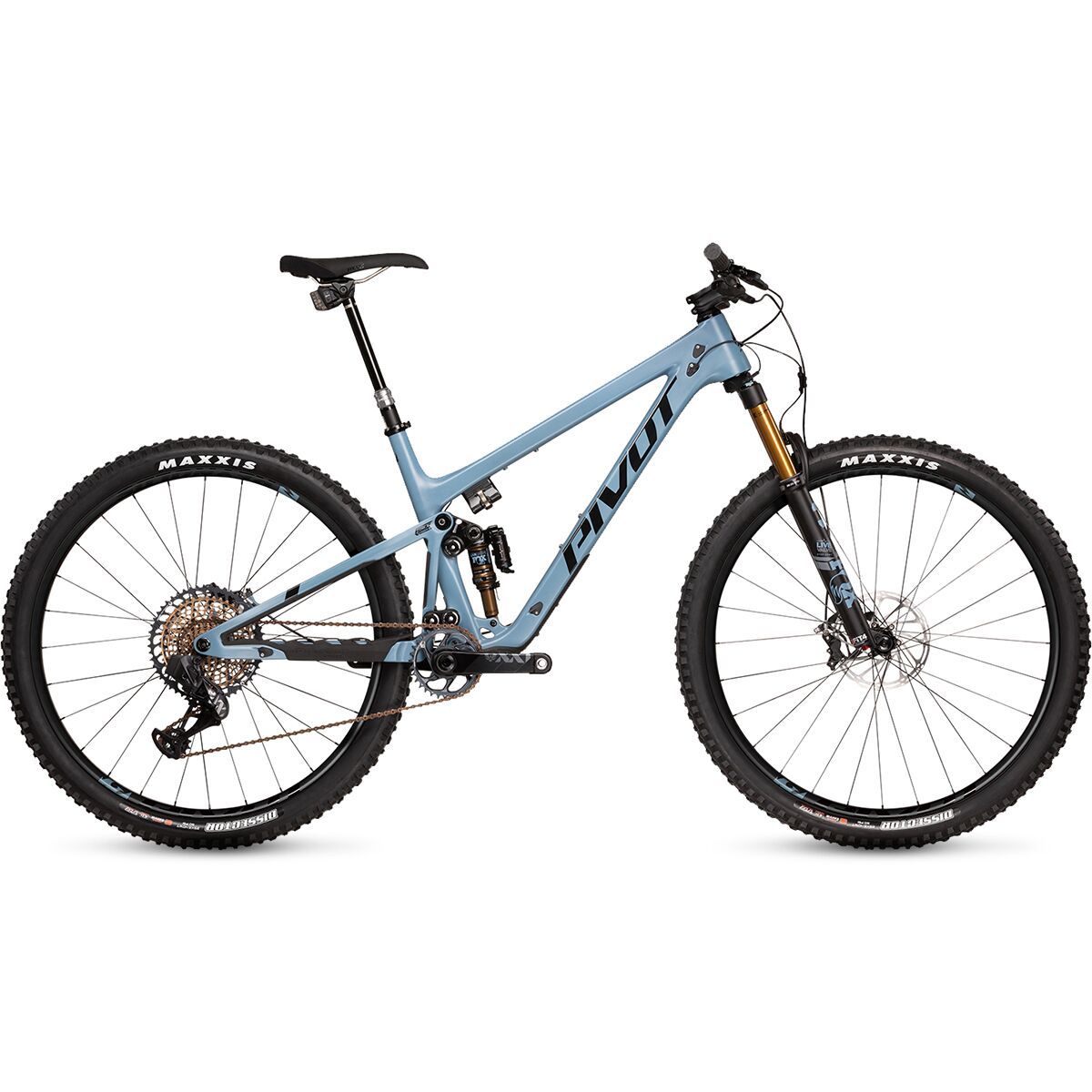
















18 comments
Post a reply to: 2015 Test Sessions: Pivot Mach 6 Carbon X01